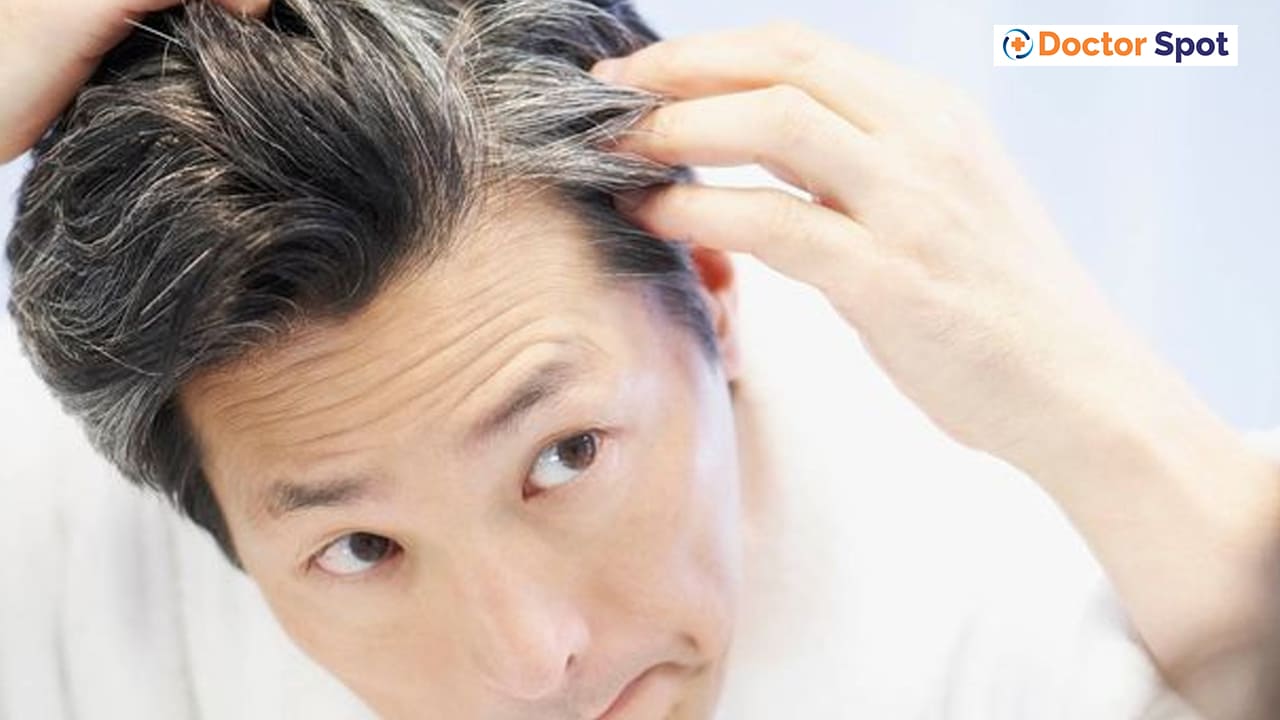What Causes of Premature White Hair at Early Age?

Introduction
Have you ever caught a glimpse of a silver strand in your hair and found yourself wondering why it’s there, especially if you’re on the younger side of the age spectrum? You’re not alone. Graying hair, though often associated with aging, does not exclusively visit those advancing in years. So, what causes white hair at an early age? Let’s dive in and unravel this mystery together.
Understanding Hair Pigmentation
The Role of Melanin
To fathom why hair turns white, we first need to comprehend how hair gets its color. It’s all about melanin, a pigment produced by melanocytes within our hair follicles. Essentially, more melanin means darker hair, and as we age, the melanocytes gradually decrease melanin production, leading to hair that becomes gray, silver, or white.
How Hair Changes Color Over Time
The pigment in our hair doesn’t just disappear overnight. It fades gradually, meaning that the process is slow and generally correlates with aging. However, for some, this process kicks off sooner than expected.
Genetic Factors
Family History and Premature Graying
Genetics play a pivotal role in determining when you might start to see white strands. If your family tree includes members who experienced early graying, chances are higher that you might, too.
Health and Medical Conditions
Vitamin Deficiencies
A lack of certain vitamins, especially B12, vitamin D, and E, can contribute to premature graying. These nutrients are crucial for maintaining healthy melanin production in your hair follicles.
Thyroid Disorders
Conditions like hypothyroidism and hyperthyroidism, which affect your thyroid’s hormone production, can also cause your hair to gray prematurely.
Autoimmune Diseases
Certain autoimmune diseases can affect pigmentation, leading to early graying.
Lifestyle Factors
Stress and White Hair
Yes, there’s some truth to the idea that stress can turn your hair white, as it can affect melanin production. However, stress alone is unlikely to be the sole cause of graying.
Smoking and Its Impact
Smoking has been linked to premature graying, so lighting up could be speeding up the silvering process.
Diet and Nutrition
A balanced diet rich in vitamins and minerals supports melanin production, helping keep those white strands at bay.
Environmental Factors
Exposure to Chemicals and Pollutants
Environmental pollutants and exposure to certain chemicals can also contribute to premature graying, as they can damage melanocytes.
Sun Damage
Just as the sun can harm your skin, it can also lead to the loss of hair pigment.
Myths Surrounding White Hair
Plucking White Hairs Causes More to Grow
This is a myth. Plucking a white hair won’t cause more to grow, but it’s still not recommended as it can damage hair follicles.
Stress Can Turn Hair White Overnight
Another popular myth. While stress does play a role, the process of graying is gradual and cannot occur overnight.
Managing and Preventing Premature Graying
Nutritional Supplements
Taking supplements to make up for deficiencies can help in managing premature graying.
Hair Care Tips
Proper hair care, avoiding harsh chemicals, and protecting your hair from environmental damage can slow down graying.
When to Seek Medical Advice
If you’re concerned about premature graying, especially if it’s accompanied by other symptoms, it’s wise to consult a healthcare provider.
Conclusion
Premature graying is a multifaceted issue influenced by genetics, health conditions, lifestyle choices, and environmental factors. While some causes are beyond our control, others offer an opportunity for intervention. Understanding these causes enables a more informed approach to managing and, hopefully, preventing those unwelcome white strands.
1. Can reversing vitamin deficiencies reverse white hair?
While addressing deficiencies can improve overall hair health, reversing white hair through vitamin supplementation alone is unlikely.
2. Is there a certain age when premature graying is considered ‘normal’?
Premature graying is subjective but is generally considered “premature” if happening in one’s 20s or early 30s.
3. Can hair dyeing accelerate the graying process?
There’s no evidence to suggest that dyeing your hair accelerates graying, though harsh chemicals can damage hair.
4. Are there any natural remedies for white hair?
Natural remedies like a balanced diet, reducing stress, and scalp massages can support hair health but might not stop graying.
5. How can I differentiate between natural graying and premature graying?
Natural graying typically begins in one’s late 30s to early 40s, while premature graying occurs before this.
Understanding the reasons behind early white hair can empower you to take the best care of your hair, embracing the silver strands or finding ways to delay their arrival.